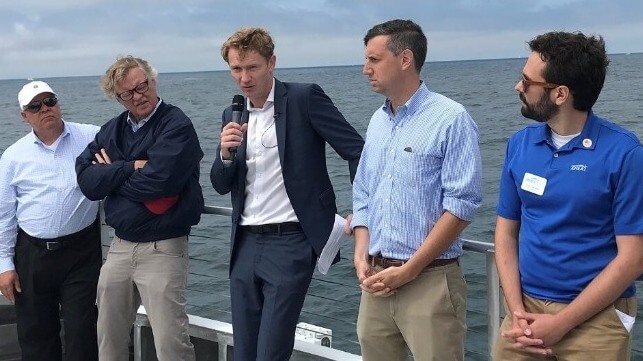In Pivot Back to Oil, Shell Eliminates Position of Head of Renewables

In another sign that Big Oil is pivoting firmly back to hydrocarbons, Shell has eliminated the position of its head of renewables, offshore wind veteran Thomas Brostrom.
Brostrom had a turbocharged career in renewables before joining Shell. He went to work for Danish offshore wind leader Orsted in 2009, and by 2012 he was in charge of Orsted's project development pipeline in the UK, the largest offshore wind market in the world. In 2015 he became president of Orsted's North America division. Under his leadership, Orsted progressed half a dozen projects on the U.S. Eastern Seaboard, including the first commercial offshore wind farm built in North America, the five-turbine Block Island Wind Farm.
Shell poached Brostrom away from Orsted in 2020-21. At the time, the British-Dutch oil major was under the leadership of then-CEO Ben Van Beurden, and Brostrom's hiring was widely seen as a sign of Van Beurden's public commitment to investing in renewable power and cutting emissions.
However, times have changed, and Shell - like other oil majors - is pivoting back to its traditional focus. Shell had its most profitable year ever last year, raking in $40 billion on the back of high oil and gas prices - but top earnings were not enough to keep Van Beurden on the field. He was sidelined in January, and he has been replaced by former Shell director of upstream Wael Sawan. In contrast to Van Beurden's long-term aspirations for green electrical power, Sawan has stressed a "ruthless" focus on near-term profitability and a firm commitment to upstream oil and gas.

that matters most
Get the latest maritime news delivered to your inbox daily.
The playing field for renewables has also changed since Brostrom joined Shell, particularly for the offshore wind sector. Costs for materials and equipment have increased with inflation, threatening the profitability of many offshore wind developments, including some that had previously looked like near-guaranteed profit earners.
Shell's massive SouthCoast Wind project is one of these financially-challenged developments. According to Shell and its JV partners, EDP and Engie, the capex and financing costs for offshore wind development have risen so much this year that it needs to terminate its offtake agreement (PPA) - even if it has to pay an exit-clause penalty. The partners cited "material and unforeseen supply chain and financing cost increases affecting the whole offshore wind industry.”
